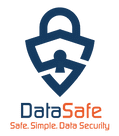With data collection and use present in almost every facet of our lives, including the obvious platforms like social media and online shopping, and the less obvious, like exercise equipment and kitchen appliances, our personal data has never been more accessible or valuable. While governments and regulators around the world work hard to implement regulations and policies to protect personal data, technology and innovation continue to grow at a rate that makes it difficult for bureaucratic processes to keep up. Along with this, the pandemic has forced many businesses and individual’s daily tasks online, exacerbating these concerns. This is why the issue of data privacy is so significant and why individuals and enterprises alike should view the protection of personal data as a team effort.
In 2020, it was easy to brush off data privacy risks for the benefit of being able to access and/or purchase anything we needed without having to leave the comfort or safety of our homes. But in the rush to transition online, both enterprises and individuals were made more vulnerable to cyber infiltrations and scams than ever before. Many individuals sacrificed good data privacy habits like only using secured websites to purchase goods, in order to adapt and survive during the pandemic.
With the COVID-19 vaccine being rolled out, local business owners will start heading back into the physical workspace. Now is a perfect time to re-evaluate and reinforce your data privacy practices.Here are a few tips on how your business can work to safeguard the personal data you have access to.
1. Be Transparent
First and foremost, be open and honest about what data your business is collecting and what it will be used for. Include information on how you store and protect the data as well. Make this information easily accessible on a privacy policy web page.
2. Secure Your Supply Chain
Assessing third party partner and vendor cybersecurity is essential when protecting your enterprise. Cyber adversaries can leverage vulnerable security controls of third-party partners in an organization’s supply chain to indirectly target your organization.
3. Assess Your Privacy & Compliance on a Regular Basis
Ensure your enterprise is following any compliance directives that may impact it regularly. We recommend doing this at least once a year.
4. Invest in Security Information and Event Management (SIEM)
Utilize SIEM and leverage third-party Managed Services support to streamline data logging, correlation & threat intelligence gathering.
5. Assess Your Security Strategy on a Regular Basis
Similar to keeping your privacy & compliance directives up to date, ensure that your existing security controls are up to date. Regular assessments and reinforcements, particularly when it comes to storing, processing or transmitting data, to determine where you are most vulnerable to cyber-attacks can help keep your client’s data protected.

